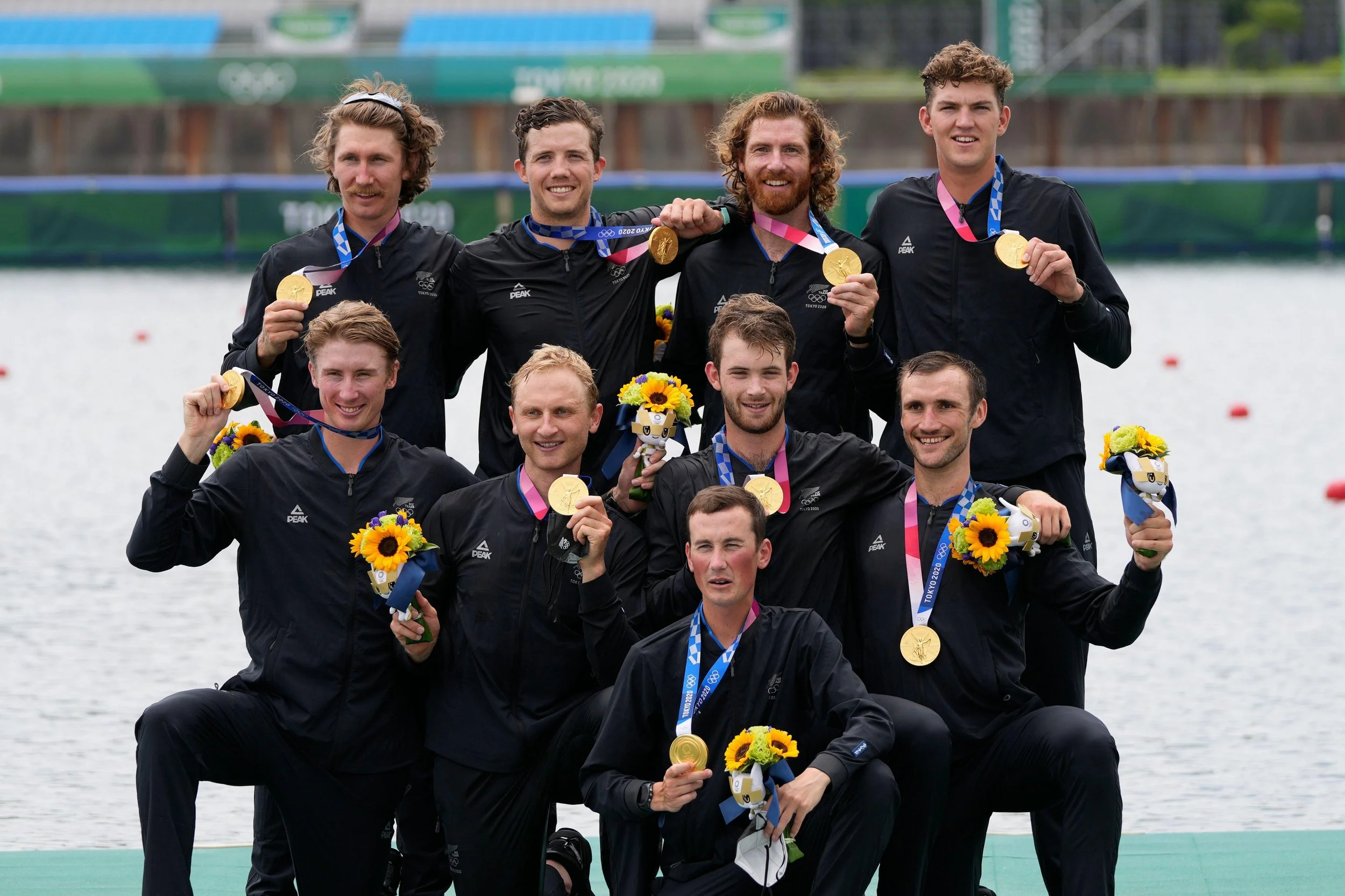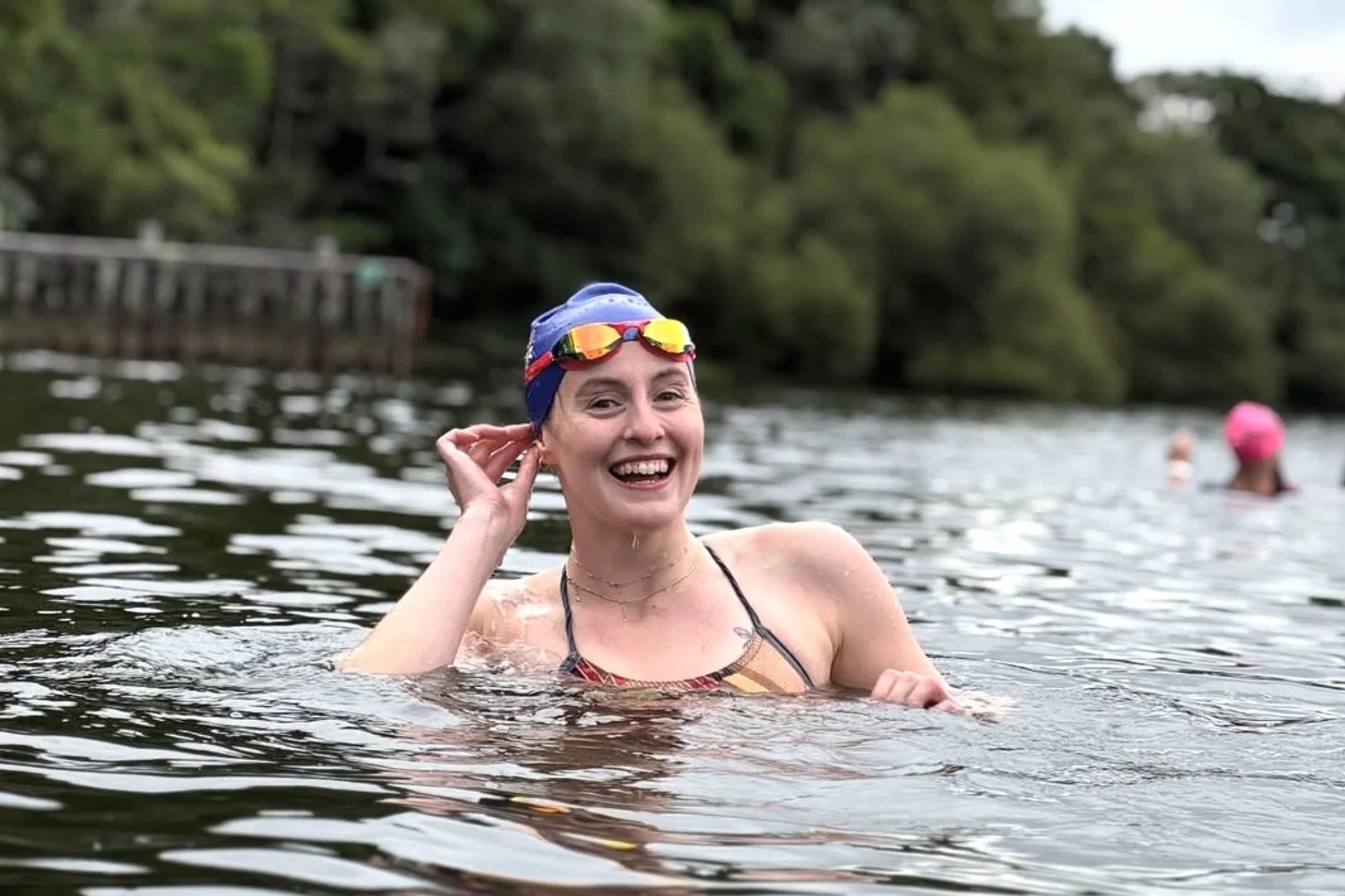Owning your platform
Yona Knight-Wisdom has been working as a coach and athlete mentor since retiring from competitive diving after the Paris 2024 Olympics Games
Three-time Olympian Yona Knight-Wisdom spent over a decade competing at the highest level in diving before retiring on his own terms after Paris 2024. Since then, he has embraced coaching, mentoring, and development roles within the sport.
In conversation with The 1v1 Project, Yona shares how honing his mindset propelled his performance to new heights – and how those same principles continue to shape his life beyond the board.
“You have to be very locked into what you’re doing, but you don’t want to zone out,” explains Yona. “Say it’s on a spectrum. You don’t want to get too close to that kind of mental drift, but you don’t want to focus on too many things at the same time, because it can get overwhelming and complicated.
“I’m not looking at the crowd; I’m looking down on the board. But I’m also trying to embrace the energy in the room,” he continues. “I’m trying to keep myself in a real middle phase. I don’t want to get too high or feel too good; I want to be right in the centre where I can utilise the adrenaline.”
This balancing act – performed in the few seconds before completing his dive – is one aspect of the mental discipline that propelled Yona to make history as Jamaica’s first male Olympic diver, competing at Rio 2016, Tokyo 2020 and Paris 2024.
Determined career choices
Yona’s diving career began conventionally: he was spotted through a school talent identification programme at nine years old, and already with a background in gymnastics, he quickly excelled.
But despite his natural ability, he consistently found himself just outside the top ranks in British events: “I was always the third, fourth, or fifth best. I was never in the top two for my age group, which is where you needed to be to qualify for European and World junior competitions.”
That continued position of near-achievement marked a turning point. At 17, Yona made the decision to represent his father’s homeland of Jamaica instead of Great Britain. It was a choice that challenged him to mature quickly. He navigated international competitions largely on his own, with limited funding, but gained valuable experience performing on the world stage.
His most transformative period, though, came in the lead-up to Rio 2016, when a run of disappointing performances forced him to confront the mental side of his sport.
“Up to then, for what I was aiming for, I had enough talent to get me through,” reflects Yona. “But competing at the international level under intense pressure, where you have to perform against the very best, is a whole different ball game.”
PA Images / Alamy Stock Photo. At 17, diver Yona made the career-defining decision to represent his father’s homeland of Jamaica, a choice that pushed him to mature quickly and compete on the world stage
Power of imagery
Yona’s breakthrough came from a university psychology module on imagery. Intrigue motivated him to experiment with visualisation techniques, and he started to construct detailed mental scripts of his dives at every step.
“I would essentially create a story from before to after my dive,” reveals Yona. “It would start from the moment I’m climbing the stairs to standing on the edge of the board: everything I could imagine seeing, feeling, hearing throughout that process.
“It’s always a hard one because you don’t see immediate results with imagery,” he adds. “But I felt something. I thought, ‘Yeah, this feels right. This is something I need to stick with.’”
By practising these mental scripts repeatedly – in the shower ahead of training, just before falling asleep – they became so deeply ingrained into his subconscious that on competition day, the familiar mental pathway helped reduce any stress response.
“I would essentially create a story from before to after my dive. Everything I could imagine seeing, feeling, hearing throughout that process”
“Because I’ve been through that process so many times in my head, when I get on the board, I’m like, ‘I’ve been here before; I know what I need to think about.’ Then suddenly everything becomes a little less stressful.”
This disciplined approach to mental preparation, combined with lifestyle changes – eliminating alcohol, prioritising recovery, and focusing on proper nutrition – led to instant results. At the Olympic qualification event, he secured his spot in Rio by just six points. It’s a margin he might not have achieved without this work.
“I finished in 17th place, and I qualified by about six points, which is minimal in diving,” says Yona. “But you could possibly attribute those six points to all the effort that I put into fixing my mindset between competitions.”
Good to great
While almost impossible to prove, it’s often suggested that the difference between good and great athletes isn’t found in physical ability or industry, but in the mental strength Yona has alluded to.
“Out of 60 divers who might compete, the top 30 or 40 will all have similar levels of talent and work ethic,” he explains. “Where the difference comes in is the mindset and self-belief in the moment of competition.”
This awareness helped form his understanding of high performance and the importance of maintaining the work on his mindset: “It’s whoever truly believes in themselves the most who can execute the dives well enough to achieve the desired result.
“The greatest athletes are those who never lose that self-belief and can always perform at or near their best.”
PA Images / Alamy Stock Photo. By repeatedly using mental scripts, Yona learned to make competition feel familiar, which helped him reduce stress and perform under pressure
Managing fear
Diving naturally involves overcoming fear, too. Fear of pain, of impact, of embarrassment. Yona notes that the key is to learn to channel these innate anxieties productively rather than attempt to push them away.
“If you’re scared of making an error, if you do everything possible to perform perfectly, you tend to make the very mistake you’re trying to avoid.”
Tuning in to his technique was his antidote to fear: “I’d focus on the strategies I’d learned. If I did that as well as possible, I knew I was more likely than not going to successfully complete my dive without hurting myself.”
“If you’re scared of making an error, if you do everything possible to perform perfectly, you tend to make the very mistake you’re trying to avoid”
Injury and perspective
A ruptured knee tendon disrupted Yona’s road to Paris 2024, his final Olympics. But the injury gave him something arguably more valuable than a steady training schedule: perspective.
“I had to build from scratch, which I’m quite grateful for,” he acknowledges. “It gave me a chance to reflect on everything I’d achieved, and I found a different level of enjoyment in my diving from that point on.”
This appreciation carried him through an intense 18-month period of “pure graft” leading to Paris, after which he made the decision to retire. This was a choice he had thoughtfully prepared for by developing interests and skills outside of diving.
“I’d observed a lot of athletes who had gone through the post-retirement period in a state of limbo and depression because they didn’t know what meaning their life had beyond sport,” explains Yona.
“I didn’t want that for myself, so I tried to make sure I had lots of other things on the go. I was coaching. I had already worked with the Dame Kelly Holmes Trust. I was trying to experience different things and learn what I liked doing.”
Athlete to mentor
Now fully focused on coaching, mentoring and developing sustainable diving programmes to help build the sport in Jamaica, Yona has found ways of fulfilling his desire to help others and his competitive spirit.
“I worried my ego would be too much to be a coach, but actually, I can feed it in a different way,” reflects Yona. “It’s kind of like being selfless to be selfish. If I give my best to the athletes, not only do I feel good when they perform well, but it helps my career, too.
“If you give good, you get good in return,” he adds. “If you put positive energy out there, eventually that will reflect back on you and lead to opportunities that might not have opened up to you before.”
“I worried my ego would be too much to be a coach, but actually, I can feed it in a different way”
Yona’s journey shows that mental preparation isn’t just for high-stakes performances – it’s a mindset that carries into every part of life. And one piece of advice from his diving days still shapes the way he moves today.
“I remember a coach telling me that we want to make sure that whatever decision we make – from the choice of dives in competition to our whole approach – we don’t look back with any regrets,” reveals Yona.
“That’s the single best piece of advice I’ve ever received; I apply that to everything I do. Sometimes it leads to slow decision-making, but it means that regardless of the result, I can’t have any regrets because I’ve considered the different outcomes.
“I choose what feels right, rather than what feels easiest.”
Yona Knight-Wisdom
FEATURED STORIES









